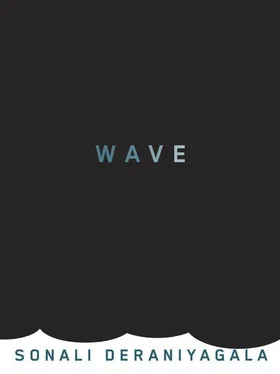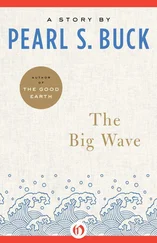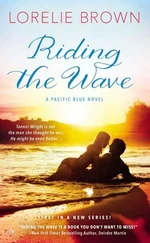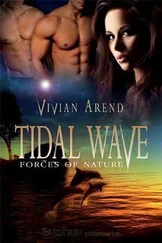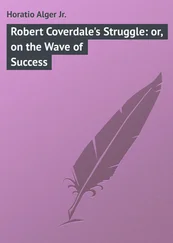The most frequent trips we made in that red van were to Yala. As a child I spent countless family holidays there, when we stayed for a week in a bungalow in the jungle, and my parents and aunts and uncles always brought too little water and soft drinks for the children but somehow got the quantities for beer right. We’d all sleep, eight beds in a row, on an open veranda at night, with only a three-foot wall between us and an elephant that appeared in the glare of the moon. I loved driving around in a jeep in the dry months when the jungle is a lattice of gray, its monotony broken only by the green burst of a wood apple tree or the red of torn bark. I liked it when the rains came, and the roads were spongy, and the trees instantly turned lime green, and the grass was mosslike in the evening light. While my brother and cousins squabbled over the last drop of Fanta in the back of the jeep, I sat next to my father and learned all about birds.
Now, in the late 1980s, an insurrection in southern Sri Lanka meant hardly anyone came to the Yala national park. So Steve and I could bask in our solitude, staying weeks at a time in an empty hotel by the sea, where the staff let us get our own beers from the bar because they were too busy playing carom and a tall tusked male elephant with a broken tail roamed outside after dark. It was to become more plush over the years. This was the same hotel we were in when the wave came for us.
Steve was utterly pleased with himself for taking that red van where only a four-wheel-drive jeep should go. We skidded across rocks and struggled in deep sand and nearly toppled over on trails that were mostly washed away. Often we encountered a herd of elephants on a narrow track. We’d park on a side to let them pass, but sometimes they’d tire of us and line up in front of our flimsy red van, coiling trunks, kicking dust, thundering their throats, readying to charge. Steve’s hand would reach for the keys to start up the engine, but they would have fallen, and it was only after much fumbling under the seat that we could make our escape. “ Ali madiwata harak ,” Steve would laughingly say about this later, and I’d tease him about his attempt at being clever. He’d picked up some of my mother’s countless Sinhala idioms, this one meaning “It’s bad enough the elephants are here [to destroy the crops], now the cattle have joined too.”
Each evening we’d sip a beer on a rock by the lagoon near our hotel and recount our day’s adventures and conjure up our future. As a child, I always wanted to be a ranger in a national park when I grew up, and now Steve’s enthusiasm for the wild matched mine. So we canceled our plans to return to England to do Ph.D.’s in economics. We’d become naturalists and live in the jungle, in a tent. Of course we did go back to England and get doctorates in economics. But on those Yala evenings, as the lowering sun gave that lagoon a coating of crushed crimson glass, our dreams made complete sense.
OFF THE MIRISSA COAST, 2011
T wo blue whales slip under our boat. I lean over the rails and look. Beneath the sunlit water these whales are blue indeed, an unlikely glowing aquamarine. With a loud rush they surface moments later, dappled gray and startlingly close. We see more whales spouting in the distance — great gusts of mist erupt from the ocean’s surface and quickly fade, so fleeting. I count eleven blue whales in all. The two near us don’t swim away. They circle our boat, vanishing under it again and again, menacing or playful, who knows. I told my friend Malathi that this boat looked insubstantial when I first saw it at the Mirissa harbor at daybreak. It seems more so now.
But I am too spellbound to be unnerved. I’ve never seen a blue whale before. I steady myself on this boat that sways in the ocean’s swell.
Our boat sits alone in a smoky dark-blue ocean twenty miles from the southern coast of Sri Lanka. There are no other boats in sight, it was some hours ago we last saw land, the sky is bare, no birds. I expand this emptiness, thinking how to the south of us is endless ocean, and then Antarctica. The sea is deep here, it drops two thousand meters to where darkness is complete and some fish have no eyes. Vik knew all about this, the midnight zone.
And Vik was struck by the wonder of blue whales. He grappled with their immensity, as long as three buses, tongue as heavy as an elephant, heart the size of a car, how can that be? He was awed by their ancientness and ancestry. There were whales even sixty million years ago, but isn’t it true they looked like dogs? I remembered all this as our boat chugged out of the small harbor. I shouldn’t be on this boat, I thought, as I nibbled on a ginger biscuit to stop feeling seasick. Vik never got to see a blue whale. I shouldn’t be out searching for whales when Vik can’t. It will be agony without him. I’ll have hell to pay.
And earlier, as the new heat of day warmed my bench on this wooden boat, their absence crowded me. Up front by the bow, that’s where Steve and Vik should be sitting. Malli should be leaning his head on this rail. This sun should be finding the hidden red in his silky black hair. I’ve flung my flip-flops in that corner, there should be three more pairs piled on top. We always loved the morning ocean, still and soft. The prospect of something this sublime, blue whales, and I couldn’t stow away their absence as I sometimes can. It charged out.
The boat entered open ocean, the coastline twisted and tilted behind. This southwest coast we knew so well. I surveyed it now. At the far end of the Mirissa beach, a bright surf lunged at a rocky outcrop, Girigala or “Parrot’s Rock,” it’s called. To the left, the sandy sweep of the Weligama Bay with its waveless, shallow waters and a colorful huddle of fishing boats. And beyond, the octagonal lighthouse at Dondra Head that the British Imperial Lighthouse Service built in the late nineteenth century. I never tired of telling the boys that this is Sri Lanka’s southernmost tip, not that Malli cared when he had a tantrum there because he was hungry and wanted only red bananas. Steve and I planned to have a house along this coast someday soon.
In these six years since they died, I’ve found it hard to tolerate this landscape. I spurn its paltry picture-postcardness. Those beaches and bays are too pretty and tame to stand up to my pain, to hold it, even a little.
Two silvery flying fish leaped out of the ocean, tails swaying. They wobbled in the air a moment before gliding above the emerald sea, fins transformed into gauzy wings. The boat dipped and rolled. We’d been out here for nearly two hours, no hint of whales. The sun was high, lighting fireworks on the water.
Malathi and I talked with Rajesh who navigates this boat with a couple of crew. Until recently Rajesh was a fisherman, as were generations of his family before him. Then a few years ago someone discovered that blue whales and sperm whales migrate along a route in these waters. Now in the early months of the year when there is no monsoon, Rajesh does whale-watching trips. He told us about how he has dived in the presence of blue whales. A container ship appeared in this otherwise empty ocean, heading southward. Rajesh instructed us to hold tight the rail, the ship’s passing would make a big wave, and it did. He steered deftly through it, so expert, all muscle, quite a lovely scar on his cheek. Steve should see, how I am impressed.
As the first blow of a whale was sighted, our boat speeded up, and I was in our living room in London. Vik and I on the red sofa watching The Blue Planet . I could hear him catch his breath as two blue whales appear on the screen, impossibly huge even as the aerial camerawork dwarfs them in an infinite ocean. He twists his hair faster and faster as they cruise and dive. And as our boat chopped the water, I wished the whale ahead of us would disappear. I can’t endure whales without Vik.
Читать дальше
